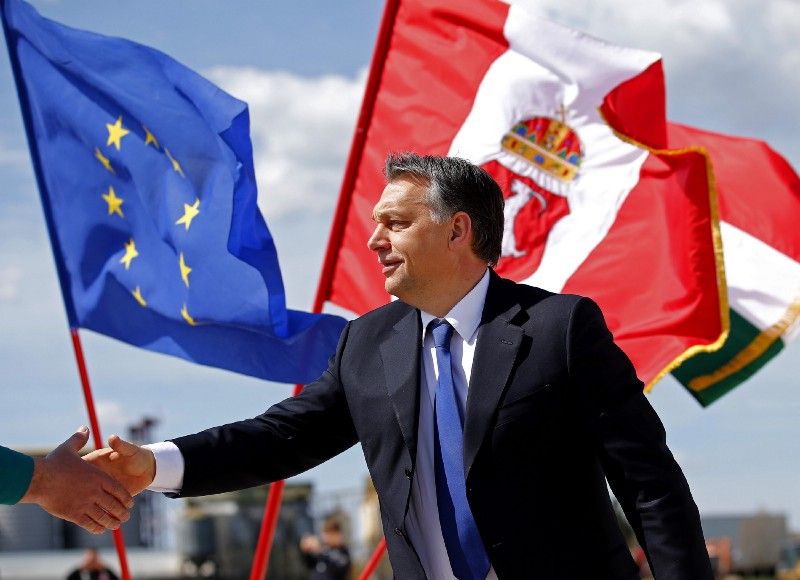April 03, 2018
This Sunday, Hungarian Prime Minister Viktor Orban is set to win another term in national elections, giving him a fresh mandate to advance his project of building what he calls an “illiberal” state at the heart of Europe.
Over the past eight years, Orban’s democratically-elected governments have, in fact, behaved less and less democratically — steadily centralizing power, eroding the independence of the courts, the media, and even cultural institutions.
For Orban and his defenders, this is a closing of ranks meant to defend Hungary’s interests against EU bureaucrats whose policies — particularly on the resettlement of refugees from Syria and North Africa — threaten to dilute Hungary’s traditional Christian identity and reduce its sovereignty. Orban himself openly looks to the authoritarian efficiency of Xi Jinping’s China and the conservative nationalism of Vladimir Putin’s Russia as examples.
His critics, meanwhile, say he has mounted an opportunistic political power play that has enriched friendly oligarchs, deepened economic inequality, and undermined the accountability of the government.
All of this presents a growing existential challenge for the EU. Alongside Poland’s move in a similarly illiberal direction, Orban’s continued strength sharpens two critical questions: First, how to impose costs on countries that buck EU institutions and ideals without alienating them further. And second, how to reconcile the desire of core Western European countries like Germany and France, which seek to further integrate the bloc, with Eastern countries’ resurgent nationalism.
More For You
Mastercard Economic Institute's Outlook 2026 explores the forces redefining global business. Tariffs, technology, and transformation define an adaptive economy for the year ahead. Expect moderate growth amid easing inflation, evolving fiscal policies, and rapid AI adoption, driving productivity. Digital transformation for SMEs and shifts in trade and consumer behavior will shape strategies worldwide. Stay ahead with insights to help navigate complexity and seize emerging opportunities. Learn more here.
Most Popular
Think you know what's going on around the world? Here's your chance to prove it.
Miami Mayor-elect Eileen Higgins points as she thanks her staff and supporters on the night of the general election, on Tuesday, Nov. 4, 2025.
Carl Juste/Miami Herald/TNS/ABACAPRESS.COM
A Democrat won Miami’s mayoral race for the first time in nearly 30 years. The Republican defeat will ring some alarms for the party – and their support among Latino voters.
Women work in the plastic container assembly area inside the El Oso shoe polish factory, located in Mexico City, Mexico, in its new facilities, after officers from the Secretariat of Citizen Security and staff from the Benito Juarez mayor's office arbitrarily and violently remove their supplies, raw materials, machinery, and work tools on January 17 of this year following a coordinated operation stemming from a private dispute. On August 27, 2025.
Photo by Gerardo Vieyra/NurPhoto
50: Mexico’s President Claudia Sheinbaum is taking a page out of US President Donald Trump’s book, implementing up to a 50% tariff on more than 1,400 products in a bid to boost domestic production.
© 2025 GZERO Media. All Rights Reserved | A Eurasia Group media company.
